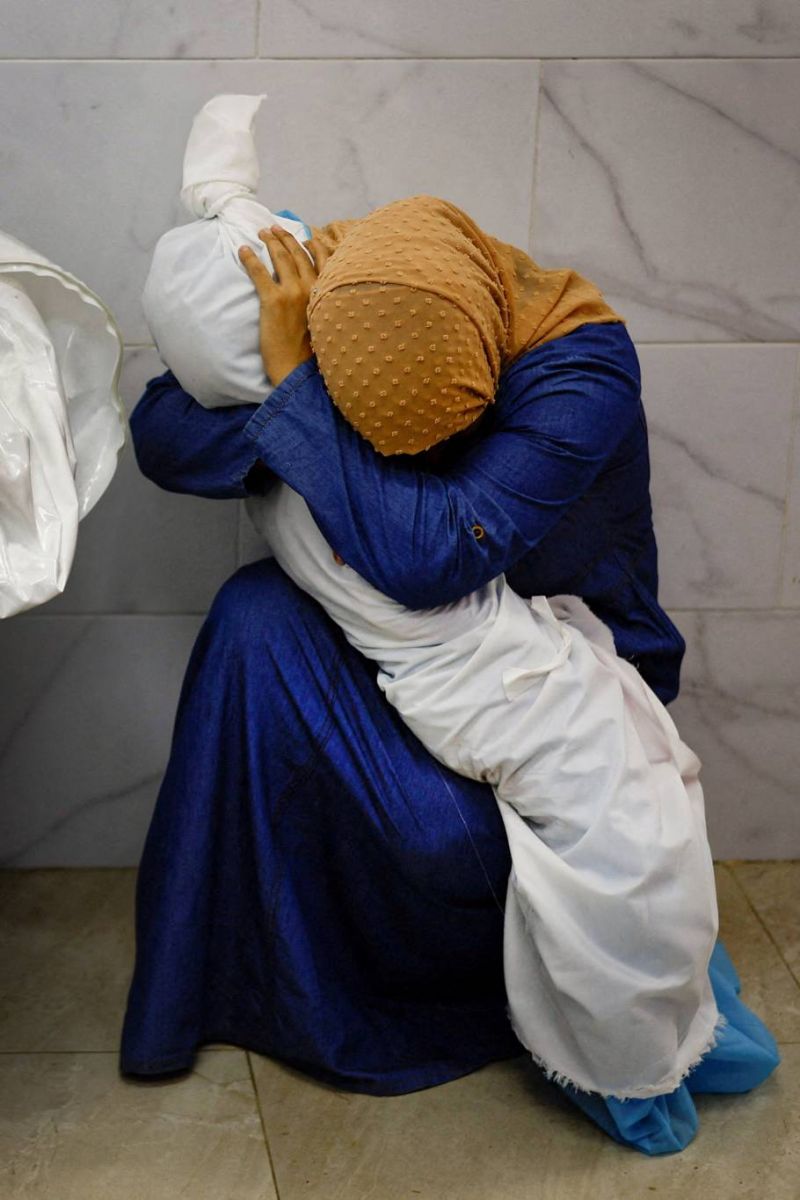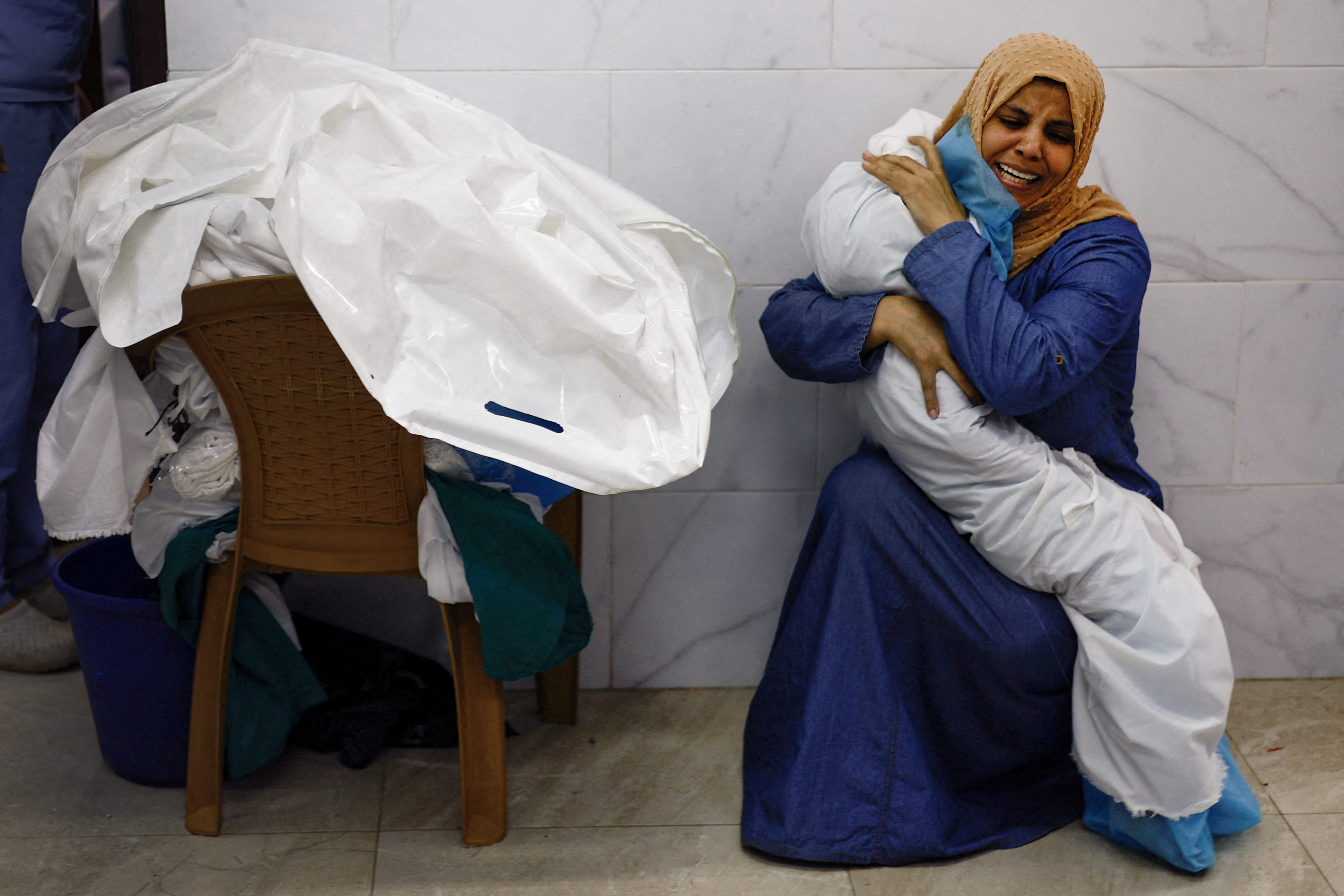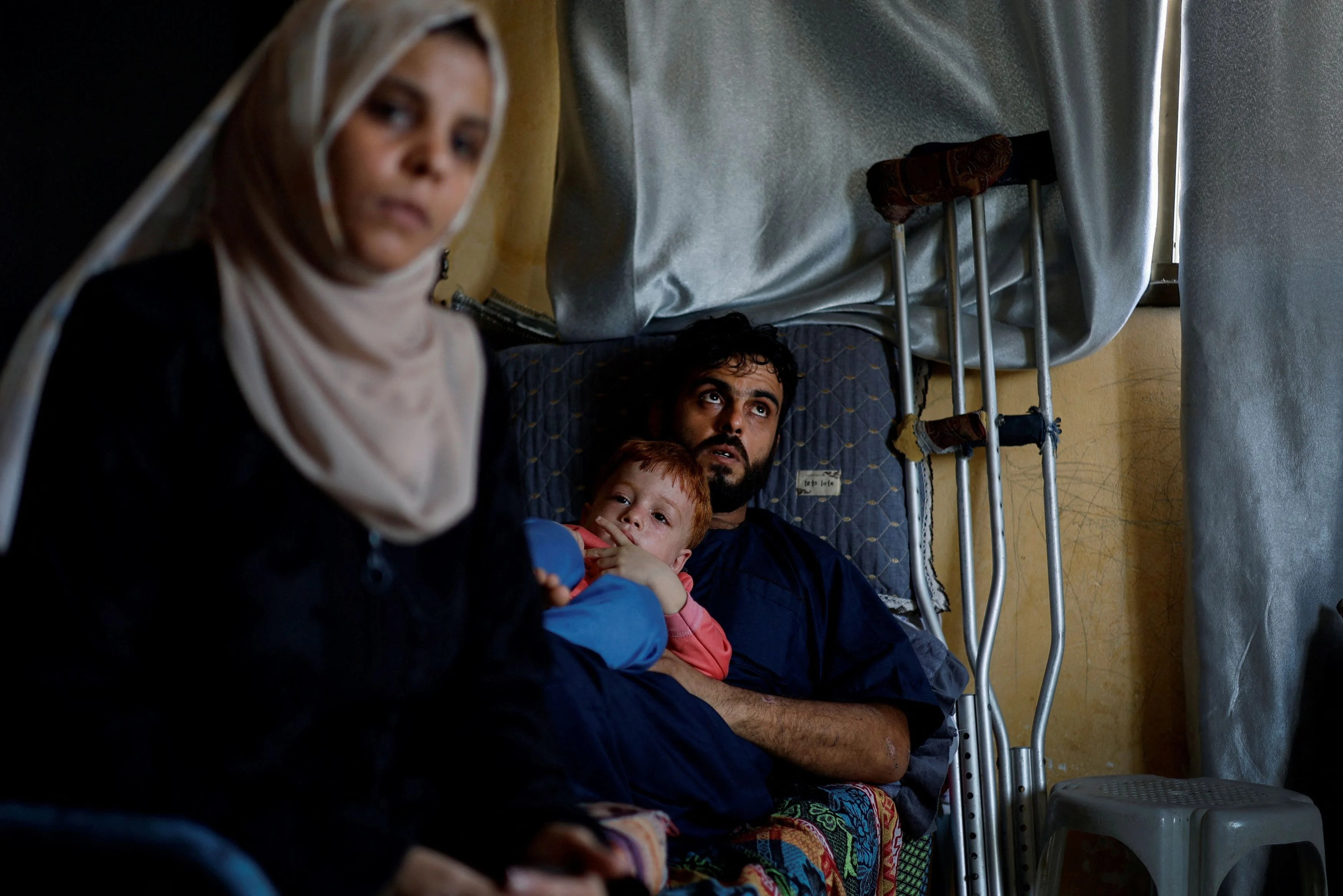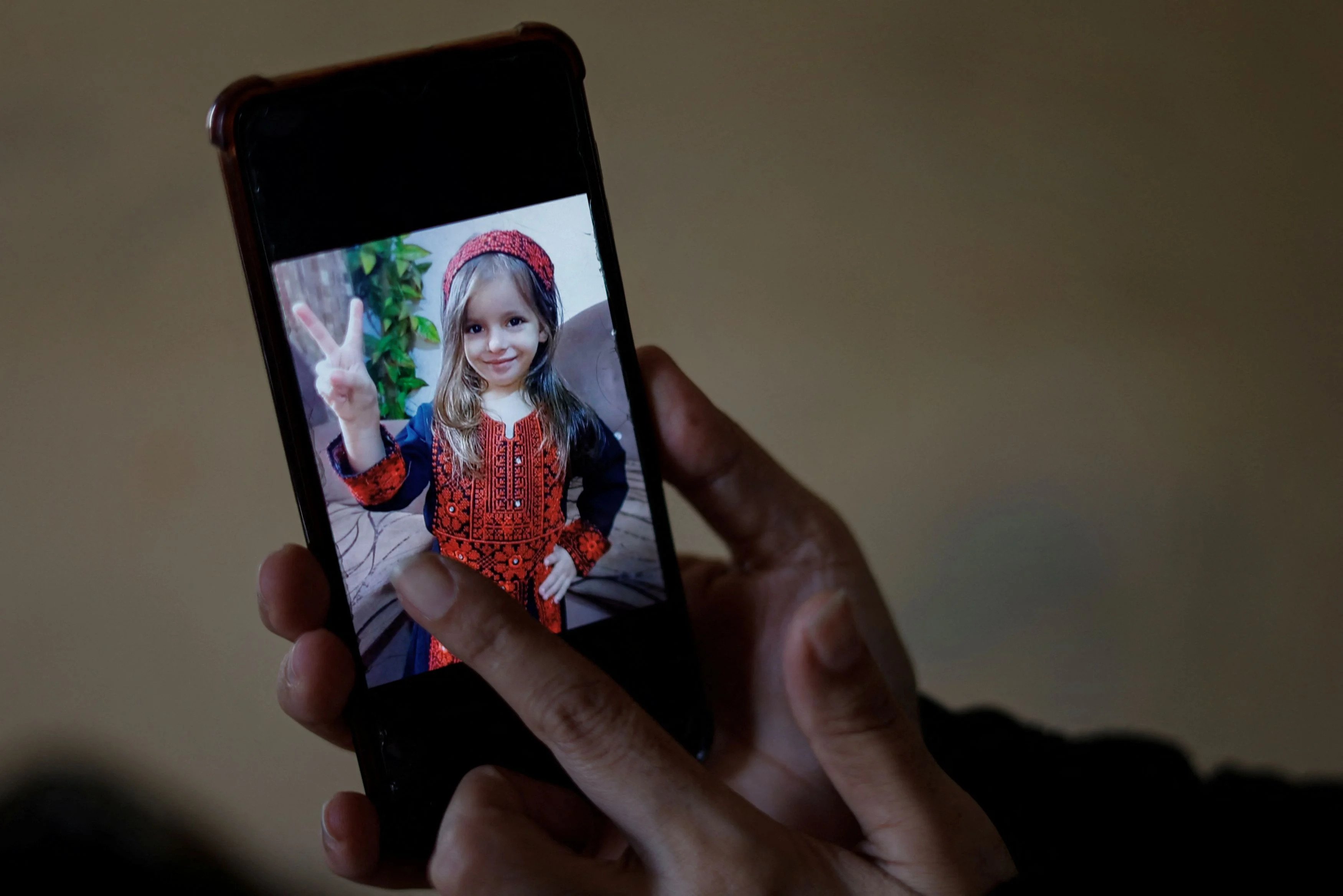
Palestinian woman Inas Abu Maamar, 36, embraces the body of her 5-year-old niece Saly, who was killed in an Israeli strike, at Nasser hospital in Khan Younis in the southern Gaza Strip, Oct. 17, 2023. (Credit: Mohammed Salem/Reuters)
In the photo, seen below, the woman cradles a child in her arms, balanced on her knee. It is an image that resonates, as ancient as human history.
But in a grim inversion of the familiar, we see that the child she holds close is a corpse, wrapped in a shroud. It is a quiet moment of intense grief. The woman wears a headscarf and her head is bowed. We cannot see who she is nor can we learn anything about the child - not even if it is a boy or girl.
The child is one of many who have lost their lives on both sides in the Israel-Hamas war. Most have names we will never know, whose deaths will spark a lifetime of grief for family members we will never meet.
In the 21st century, an average of almost 20 children a day have been killed or maimed in wars around the world, according to UNICEF.
 Palestinian woman Inas Abu Maamar, 36, embraces the body of her 5-year-old niece Saly, who was killed in an Israeli strike, at Nasser hospital in Khan Younis in the southern Gaza Strip, October 17, 2023. (Credit: Mohammed Salem/Reuters)
Palestinian woman Inas Abu Maamar, 36, embraces the body of her 5-year-old niece Saly, who was killed in an Israeli strike, at Nasser hospital in Khan Younis in the southern Gaza Strip, October 17, 2023. (Credit: Mohammed Salem/Reuters)
Reuters photographer Mohammad Salem was in Khan Yunis in the southern Gaza Strip on Oct. 17 at the Nasser Hospital morgue, where residents were going to search for missing relatives.
He saw the woman squatting on the ground in the morgue, sobbing and tightly embracing the child’s body.
"It was a powerful and a sad moment and I felt the picture sums up the broader sense of what was happening in the Gaza Strip," he said. "People were confused, running from one place to another, anxious to know the fate of their loved ones, and this woman caught my eye as she was holding the body of the little girl and refused to let go."
The moment was particularly poignant for Salem, whose wife gave birth to their own child just days previously.
In Gaza, where there have been communications blackouts, tracing people has been fraught with difficulties. But two weeks after the photo was taken, Reuters was able to track down the woman in the photo and interview her at her home in Khan Younis.
She is Inas Abu Maamar and the body she was holding in the photo was that of her 5-year-old niece, Saly.
 Inas Abou Mammar next to his brother, Ramez, Saly's father. (Credit: Mohammed Salem/Reuters)
Inas Abou Mammar next to his brother, Ramez, Saly's father. (Credit: Mohammed Salem/Reuters)
Inas had raced to the house of her uncle when she had heard that it had been hit, and then on to the morgue.
“I lost my conscience when I saw the girl, I took her in my arms,” she said. “The doctor asked me to let go... but I told them to leave her with me.”
Saly’s mother and sister were also killed, along with Inas’ uncle and aunt. Saly was a favorite of Inas - she used to drop by her grandmother’s house on the way to kindergarten and ask her aunt to take photos of her with her cell phone.
“Most of the videos and pictures in my mobile are of her,” said Ines.
 In Inas' phone, photos of little Saly. ((Credit: Mohammed Salem/Reuters)
In Inas' phone, photos of little Saly. ((Credit: Mohammed Salem/Reuters)
Saly’s 4-year-old brother Ahmed was outside the house when it was struck, and survived. He is now living with Inas. But he has little appetite to play, says Inas. He speaks seldom, other than to ask where his sister Saly is.